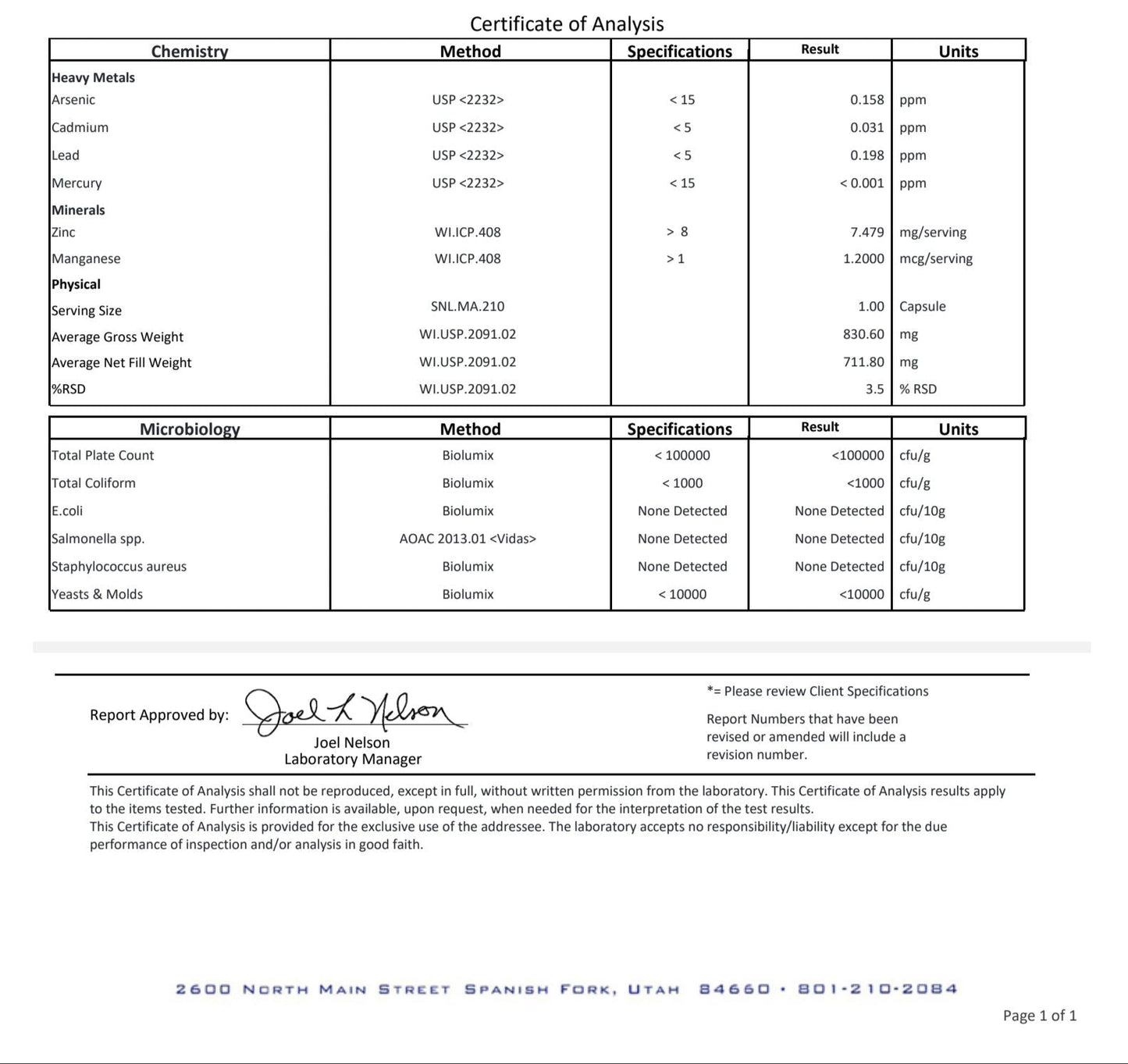Vitamin C
May support immune, cardiovascular, skin, cognitive, fat burning, and digestive health (97, 98).
May support immune health via increased oxidant, free radical scavenging, and fueling neutrophilic (immune cell) activity in chemotaxis, phagocytosis, and microbial killing (97,98).
May support fat burning by increasing carnitine biosynthesis (molecule required for mitochondrial fatty acid oxidation) (97,98).
May support accelerated bone healing after a fracture, increased type I collagen synthesis, and reduced oxidative stress (inflammation) (98).
Vitamin E
May support immune function, cognitive health, cardiovascular health, and bone health (204,205,206,207,208)
May support immune health via neutralizing free radicals and reactive oxygen species, and increased T lymphocyte-mediated immune function (204).
May support cardiovascular health via reduced cholesterol (204).
May support cognitive function via reduced oxidative stress, inflammation, and DNA damage of neuronal tissues (208).
Biotin
May support conversion of food into cellular energy, hair health, skin health, and cognitive function (213,214).
May support glucose breakdown into skeletal muscle tissue (213,14).
Magnesium
May support optimal nerve function, muscle contractions, cardiovascular, bone health, and decreased anxiety (90,91).
Supports biological reactions such as ATP-fueled reactions and pancreatic insulin secretion (90,91).
May support reduced systolic blood pressure, fasting glucose, triglycerides, and healthy HDL levels (90,91).
May support reduced peripheral cortisol levels in the CNS and supports relaxation and decreased anxiety (90,91).
Zinc
May support immune function, skin health, cognitive function, and vision (172,173).
May support stimulation of the innate and adaptive immune system (172,173).
May support the activation of lymphocytes and activation of innate T cell-mediated immunity (172,173).
May support cognitive function by modulation of neuronal signaling in areas of the brain associated with memory and learning (hippocampus) (172,173).
Manganese
May support enzymatic antioxidant reactions, increased bone mineral density, and blood sugar regulation (148,149).
Chromium
May support insulin function, reduced cholesterol, improved blood sugar regulation, and may lower cholesterol (218,219).
Banaba Leaf
May support reduced blood sugar, reduced inflammation, reduced thrombosis (clot production), reduced LDL cholesterol, and increased HDL cholesterol (237,238).
May support increased HDL cholesterol via increased lecithin-cholesterol acyltransferase activity (an enzyme associated with HDL production) (237,238).
Guggul
May support healthy detoxification.
Bitter Melon
May support reduced blood sugar levels,reduced inflammation, increased HDL cholesterol,and reduced LDL cholesterol, (235,236)
May support healthy blood sugar levels via increased glucose uptake by GLUT-4 vesicles (cells that transport glucose into cells) and improved pancreatic beta cell production of insulin (236).
Licorice Root
May support anti-inflammatory, anti-allergenic, and antimicrobial properties (177).
Cinnamon Bark
May support blood sugar regulation and cardiovascular health (166).
May support cardiovascular health via decreased levels of fasting plasma glucose, total cholesterol, LDL-C, triglyceride levels, and an increase in HDL-C levels (166).
May support blood sugar regulation by enhanced glucose uptake (166).
Yarrow Flowers Powder
May support antioxidant function and reduced inflammation (239).
May support antioxidant function via high contents of Apigenin (flavonoid) which scavenges free radicals and may combat inflammatory cytokines (239).
Cayenne Pepper
May support reduced diarrhea, cramps, and muscle inflammation (176).
May support decreased muscle soreness and increased muscle strength (177).
Juniper Berry
May support urinary health and antioxidant function (240).
White Mulberry Leaf
May support cardiovascular health, antioxidant function, and may reduce cardiometabolic disease (241).
May support cardiovascular health via reduced blood pressure, reduced atherosclerosis activity, and reduced inflammation (241).
May support antioxidant function via high levels of 1-Deoxynojirimycin (DNJ), phenolics and flavonoids (241).
Vanadium/ Vanadyl Sulfate
May support blood sugar regulation via improved pancreatic beta-cell function (cells that produce insulin) (227).
Alpha Lipoic Acid
May support immune health, cardiovascular health, blood sugar regulation, reduced body fat, and improved cognitive function (158).
May support blood sugar regulation via increased glucose uptake in insulin-sensitive and insulin-resistant muscle (158).
May support cardiovascular health via increased nitric oxide production and decreased glycation of red blood cells (decreased HA1C) (158).
May support cognitive function via enhanced memory, focus, and reduction of neurodegenerative disease (158).
May support immune health via increased free radical scavenging capabilities and increased glutathione (master antioxidant) levels (158).
Reduces body weight via decreased appetite in individuals with metabolic syndrome (158).
L-Taurine
May support hydration, increased energy, antioxidant function, and increases fat metabolism during aerobic exercise (242,243).
May support antioxidant function via combating reactive oxygen species (243).
May support increased fat metabolism during exercise via enhanced mitochondrial fatty acid oxidation (cells using fat as fuel) (242).













